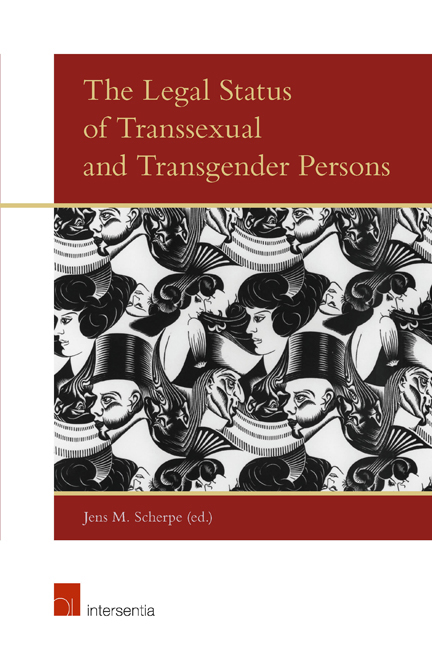Argentina
from North and South America
Published online by Cambridge University Press: 28 November 2017
Summary
LEGAL FRAMEWORK AND STATISTICS
ACT NO. 26.743 ON GENDER IDENTITY
Self-Identification and Perception
In Argentina, the current law on the legal recognition of preferred gender is set out in Act No. 26.743 (‘Gender Identity Act’ or ‘2012 Act’), which was enacted in May 2012. The Gender Identity Act has established a radically new regime for legal gender recognition in Argentina, moving away from the previous, courtcentred system towards a process which prioritises the self-identification and self-perception of transgender individuals. This new departure is evident not only in the way persons can obtain legal recognition but also in the extended and simplified rights which transgender individuals now enjoy regarding appropriate health care. The far-reaching changes which have been enacted by the 2012 Act are evident in Article 2 of the 2012 Act, which defines ‘gender identity’ as ‘the internal and individual way in which gender is perceived by persons, that can correspond or not to the gender assigned at birth, including the personal experience of the body’ (emphasis added). Article 2 continues that a person's perception of their own gender ‘can involve modifying bodily appearance or functions through pharmacological, surgical or other means, provided it is freely chosen.’ Gender identity also includes ‘other expressions of gender such as dress, ways of speaking and gestures.’
Argentina's Constitutional Regime
The Gender Identity Act is a product of Argentina's constitutional environment, particularly the right to privacy set out in Article 19 of the National Constitution. Article 19 declares that ‘private personal’ acts, which offend neither public order nor morals and which do not harm third parties, fall within God's will and are not subject to review by judges. Under Article 19, a person cannot be compelled to engage in any act which is not prescribed by law nor can he be prevented from actions which are not proscribed by law. Article 75, subsection 22, incorporates a number of international treaties, conventions and charters into Argentina's constitutional regime. These international agreements, many of which have already recognised the protection of individuals on the basis of gender identity, include, inter alia, the International Covenant on Economic, Social and Cultural Rights, the International Covenant on Civil and Political Rights and the American Convention on Human Rights.
- Type
- Chapter
- Information
- The Legal Status of Transsexual and Transgender Persons , pp. 571 - 584Publisher: IntersentiaPrint publication year: 2015



